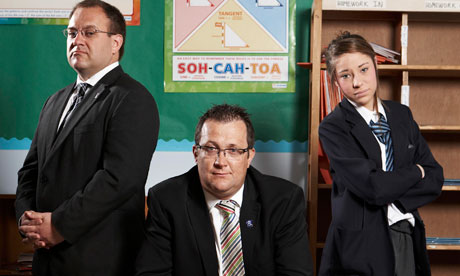Educating Essex - Episode 1, from 10 minutes 40 seconds

Together, we are going to watch the remainder of episode 1 of Educating Essex. As we are watching, you should answer the questions below. You can copy and paste them into a Word document and type your answers underneath.
1.‘Without
wishing
to sound
kind
of _________ about it a teacher
has to entertain.´
2.Why does Mr Drew believe that a teacher has
to entertain? What example does he give?
3.‘When
you
look at it
like
that,
_________!’
4.Do you think it is acceptable for a class to
be interrupted to celebrate a teacher’s birthday? What do you think viewers might think of this scene?
5.‘The
hardcore
kids
we’ve
got
are really
fairly
hardcore.
They
are massively
____________.’
6.‘Her
mobile
phone
is
becoming
a ________________ with the staff.’
7.According to Mr Drew what is the way of stopping pupils ‘make
a disaster
of their
lives’?
8.Is expelling a student the solution according to Mr Drew? Why or why not? Develop your answer.
9.‘She
is
one
of the
most
__________ young
people
that
we’ve
ever
had.’ (talking about
Carmelita)
10.‘Once
a young
person
decides they
don’t
care,
and they
don’t
care
what
you
do, you’re
______________ .’
11.Why does Mr Drew want to suspend
Carmelita?
12.Why does the other teacher end the phone call with Carmelita’s mother?
13.How does Carmolita’s description of the event vary as the story progresses?
14.CCTV cameras in the school were crucial in helping to prove Mr Drew's innocence. Do you think that all schools should have CCTV cameras installed? Why?/Why not? If you do, where in a school should/shouldn't they be installed. Justify your opinion.




